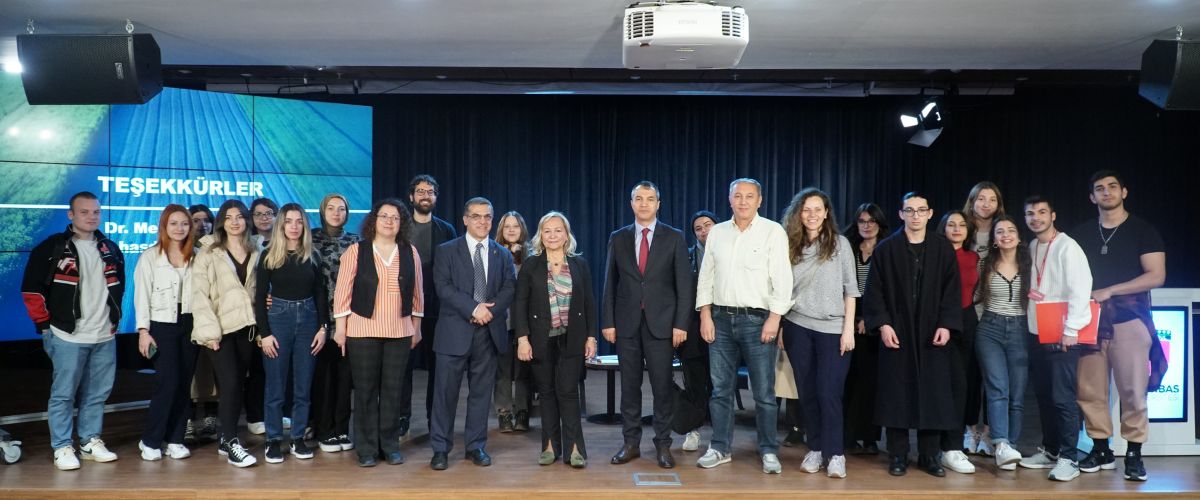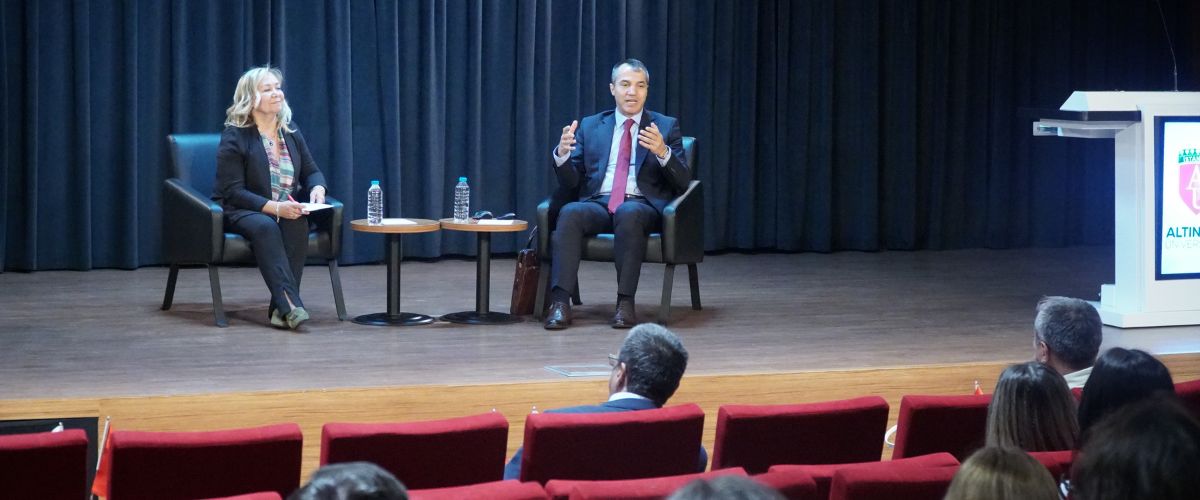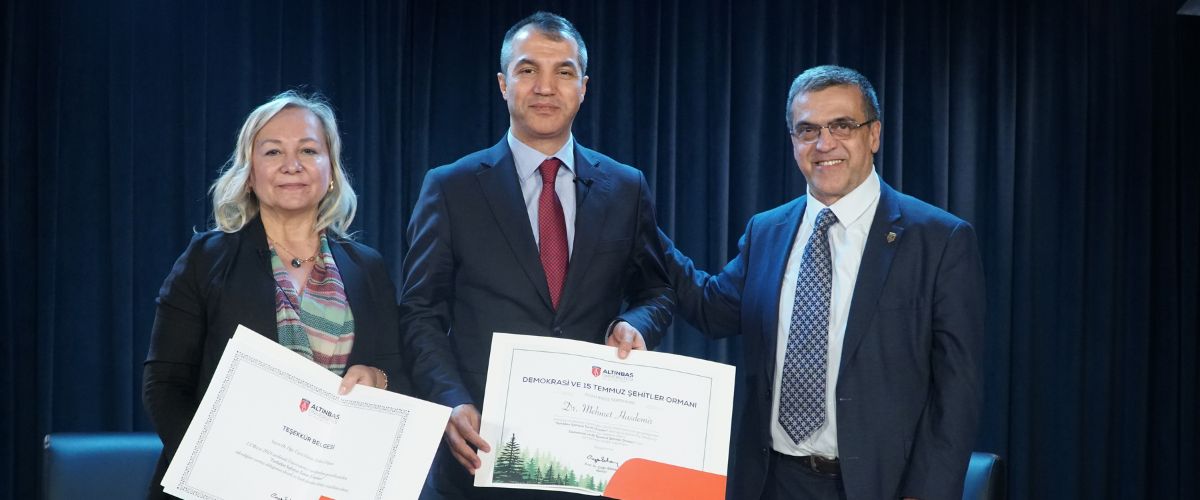Agriculture from Past to Present, Present to Future
Dr. Mehmet Hasdemir, General Director of Plant Products Production of the Ministry of Agriculture and Forestry, participated in the Agricultural Products from Field to Table event organized at Altınbaş University.
Altınbaş University Quality Processes Coordinator Dr. Lecturer. Dr. Mehmet Hasdemir from the Ministry of Agriculture and Forestry, the guest of the “Agricultural Products from Field to Table” event moderated by Altınbaş University Quality Process Coordinator Dr. Füsun Zehra Özkan, gave information about the developments in the last 20 years.
During the event, many topics ranging from the importance of agriculture and food to the use of chemicals in agriculture were discussed. Stating that farming is one of the oldest professions in the world, Dr. Mehmet Hasdemir said: “Humanity has been in need of nutrition since its existence. For this reason, farming and agriculture are very important.”
Stating that farming is also an economic activity, Dr. Hasdemir said, “There are millions of people who make a living from it.” He reminded that farming creates an important added value not only for the need for nutrition but also for the economy. Referring to the relationship between farming and gastronomy, Dr. Hasdemir noted that agriculture is an indispensable value from a gastronomic point of view and said:
“The most important resource in agriculture is human. When we look at the last 20 years, there is an 84% increase in the world's agricultural added value. While it was 2 trillion USD in 2000, it has reached a volume of 3.7 trillion USD in 2021. On the other hand, there is a serious increase in population. The world population, which was 6.1 billion in 2000, reached 8.1 billion in 2024. It is expected to be 10 billion in 2050. 20 years ago, 2 to 3 decares of land was enough to feed one person. Today, more agricultural land is needed. However, fewer people are interested in this profession. Fewer farmers support this business.”
“We do not buy GMO products”
Evaluating the use of pesticides in agriculture, Dr. Hasdemir said, “ Türkiye is far below the world average in this regard. Our soils are not so polluted yet because Türkiye is not a country where chemicals are used intensively. The GMO issue is very curious. You will be surprised, but GMOs are not used in Türkiye. This issue is controlled by 100% inspection, not sampling. We do not use GMOs in agriculture and we do not buy GMO products from outside. We only buy 2 products, corn and soy. These products do not come to the table, we use them in animal feed.”
Pointing out that world production is directly proportional to demand, Dr. Hasdemir said, “The issue of what to produce is also very much linked to gastronomy. Whatever is in demand is produced more.” Stating that the diversity in plant production in the world has decreased, Dr. Hasdemir noted that sugar cane, corn, wheat, paddy, potatoes and soybean are the most produced products and said that agricultural areas have decreased, while productivity has increased with the effect of technology.
Dr. Hasdemir stated that the world produces enough for hunger, but the real problem here is sharing and waste. Stating that the only thing that does not change in agriculture is change, Dr. Hasdemir said: “At the beginning of the 20th century, in the period we call agriculture 1.0, there was a transition to the use of machinery in production. In the first quarter of the 21st century, with Agriculture 4.0, smart agricultural practices are carried out with information and technology. In the agriculture of the future, robotic applications and artificial intelligence agricultural applications will be made.”
Explaining that agriculture in Türkiye has also made progress in this direction, Dr. Hasdemir said, “Our plant production has increased by 37% in 20 years. We rank 6th in world fruit production and 4th in vegetable production.”
Answering the students' questions about organic products, Dr. Hasdemir said, “Is a product really organic or not? For the answer to this, we need to look at its certificate. If it is a product that produces at the specified standards and has the certificate we provide, we can say that product is organic.”




